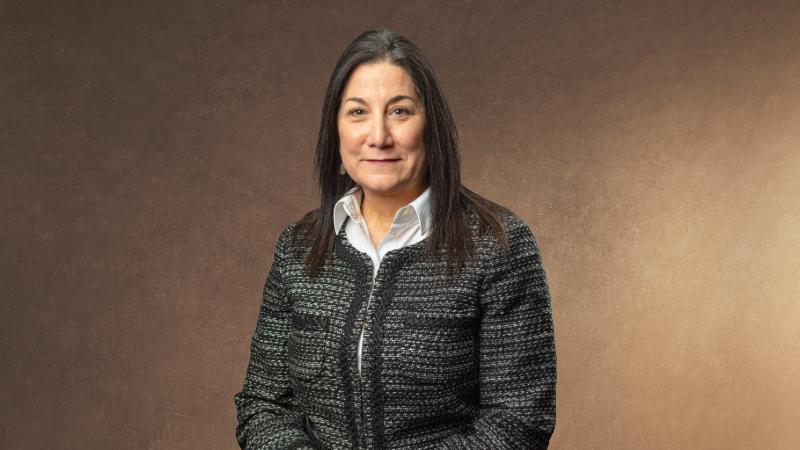
Amy Emmert, MAS, BSN, RN and Haylie Wisemiller, BSN, RN
August 14, 2023
When people think of health care, most connect it to physical health and getting the care we need when we're feeling under the weather. While that is a big part, "well care" is just as important as "sick care" as we strive to create a healthier hometown community. Prevention, education and access to tools beyond the hospital or clinic play a big role in positively affecting our overall health and well-being.
What are social determinants of health?
Social determinants of health are factors that affect our health based on where we are born, grow up, live, work, play and age. Factors like money, education, job, home life, and health care access can greatly influence our health and well-being.
Health disparities are differences in health outcomes between different communities. Here are a few examples:
- People living in low-income neighborhoods may have difficulty finding fresh and healthy food nearby, which can contribute to chronic diseases.
- Not having safe parks or places to exercise can also contribute to inactivity and chronic conditions.
- Living in inadequate housing with mold or overcrowding can lead to respiratory problems and other health issues.
- People who don't have stable jobs or education opportunities may experience higher stress levels, which can affect their mental health.
Unequal access to health care is another big factor. Some communities don't have enough health care facilities or types of services to serve their entire population, or people may experience transportation issues to get health care facilities easily, so they are not getting the timely or affordable care they need. These disparities can lead to delays in diagnoses, worse treatment results, and, ultimately, a higher mortality rate.
What is health equity?
Simply put, it means that everyone has a fair chance to be their healthiest self. It is making sure that all people, no matter who they are or where they come from, have the same access to health care, healthy food, safe places to live, work and play, and the chance to learn and succeed.
Why is health equity important?
Health equity is important because everyone deserves the opportunity to live a healthy life. Unfortunately, disparities in health outcomes continue day-in and day-out throughout the nation and are shaped a great deal by social determinants of health. By addressing these determinants, we can level the playing field by reducing preventable diseases and ensuring everyone has equal access to health care.
What can I do to help?
Achieving health equity is the responsibility of communities, organizations, healthcare providers, policymakers and YOU. Here are some things that individuals can do:
- Learn about what the most frequent health disparities and social needs are in your community. A good resource for this is your local Community Health Needs Assessment (CHNA) and/or Community Health Improvement Plan (CHIP).
- Support community organizations or initiatives that are working to address social determinants of health, such as volunteering at food banks or supporting affordable housing initiatives.
- Advocate for policy change by contacting your local representatives and supporting initiatives that promote access to services for underserved population.
- Prioritize your own health and well-being, as it allows you to contribute positively to your community.
- Practice empathy towards others and strive to understand the unique challenges they may face.
Health equity is crucial for creating a community where everyone has equal opportunities to achieve optimal health. By addressing disparities in health outcomes and social determinants, we can collectively work towards a future where everyone can enjoy the benefits of good health and well-being.
Amy Emmert, MAS, BSN, RN, is the Senior Director of Population Health at St. Peter's Health. She is a graduate of the Carroll College Nursing Program and holds a Master's Degree in Applied Science in Population Health Management from Johns Hopkins Bloomberg School of Public Health. In her role, Amy collaborates closely with the St. Peter’s leadership team, community organizations, and collaborative partners to develop strategic plans, operational budgets, policies, program development, and foster community collaboration. She leads various collaborative projects aimed at quality improvement and advancing population health initiatives at St. Peter's. Amy's expertise in data analytics enables her to drive actionable analysis for improving population health, enhancing care quality, and delivering cost-effective care.
Haylie Wisemiller, BSN, RN is a Population Health and Community Education Specialist at St. Peter’s health where she utilizes the priorities of the community health needs assessment to help guide population based programming and initiatives focused on increasing the health and wellbeing of the individuals in her community. She connects with community organizations and coalitions to collaboratively work towards proactively addressing risk factors and supporting vulnerable populations. Haylie is a member of St. Peter’s employee led Diversity, Equity, Inclusion and Belonging (DEIB) Steering Committee.


